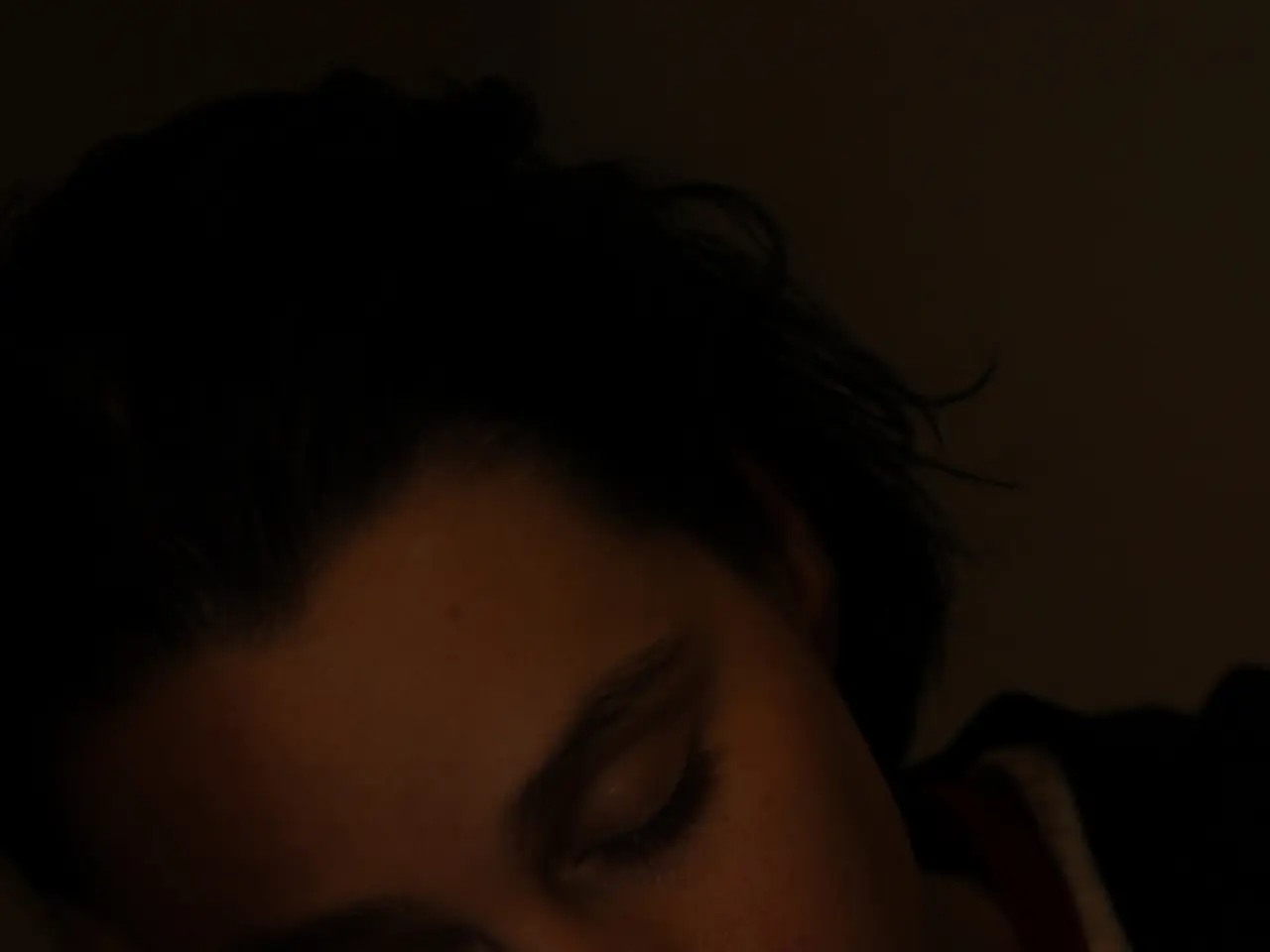Evening melancholy: Underlying factors and remedial measures
Nighttime depression, a common occurrence for many individuals battling depression, can be a challenging hurdle to overcome. This article aims to shed light on the factors contributing to nighttime depression and provide strategies for managing its symptoms.
Depression, a widespread mental health condition, can manifest in various ways, and one such manifestation is an intensification of symptoms at night. Several interconnected factors contribute to this, as outlined below.
Firstly, the lack of daytime distractions and increased rumination can allow the brain to focus on worries and negative thoughts accumulated during the day, exacerbating feelings of sadness, anxiety, and depressive symptoms.
Secondly, depression can disrupt natural sleep patterns, leading to difficulties falling asleep, early morning awakenings, or restless sleep. This disruption in the sleep-wake cycle further worsens depression symptoms.
Thirdly, anxiety, a common co-occurrence with depression, can cause nighttime racing thoughts and physiological symptoms such as a racing heart and muscle tension, making it harder to relax and sleep.
Fourthly, sleep disorders like insomnia and sleep apnea, which can be caused or worsened by chronic stress and depression, can exacerbate depression by causing fatigue and emotional instability.
Lastly, social and behavioral factors such as excessive social media use or feelings of social isolation can increase nighttime depressive symptoms due to increased negative feelings and difficulty staying grounded in the present.
To combat nighttime depression, several coping strategies are recommended. Establishing a calming nighttime routine, such as reading, gentle stretching, or mindfulness meditation, can reduce rumination and calm the mind. Limiting exposure to screens and social media before bed can help minimize negative emotional triggers and improve sleep quality.
Practicing sleep hygiene, including maintaining a consistent sleep schedule, creating a comfortable sleep environment, and avoiding caffeine and heavy meals before bedtime, can also improve sleep and reduce insomnia symptoms.
Using cognitive-behavioral techniques, such as journaling or cognitive behavioral therapy (CBT)-based exercises, can help challenge and redirect negative thoughts that increase at night.
For persistent or severe symptoms, consulting a mental health professional for therapy or medication management is essential.
Addressing both the psychological and physiological contributors to nighttime depression, especially by improving sleep and reducing anxiety, can effectively mitigate worsening symptoms at night.
It's important to note that depression is a complex condition with causes likely rooted in a combination of genetics and the environment. Symptoms include feelings of hopelessness and worthlessness, persistently low mood, irritability, loss of interest in hobbies, fatigue, difficulty concentrating or remembering, insomnia, suicidal thoughts, restlessness, feelings of isolation, and feelings of emptiness.
Risk factors for depression include a family history of mental health problems, past trauma, chronic stress, long-term physical health conditions, other mental health problems, particularly anxiety disorders, low self-esteem or pessimism, and heavy alcohol or drug use.
Treatment options for depression include selective serotonin reuptake inhibitors, exercise interventions, and maintaining a healthy diet. A study using data from over 3 million people found that those with depression have a higher risk of heart disease and are more likely to die at a younger age.
Recently, Esketamine, a new class of drug, has been approved for treating depression in cases that do not respond to other treatments.
In conclusion, understanding the factors contributing to nighttime depression is crucial in managing its symptoms. By implementing the recommended coping strategies and seeking professional help when necessary, individuals can take significant strides towards improving their mental health and wellbeing.
- The sleep-wake cycle disruption caused by depression, often worsening the symptoms, can be a result of insomnia, a sleep disorder that may be caused or exacerbated by chronic stress and depression.
- Implementing a health-and-wellness routine, such as a calming nighttime ritual or practicing sleep hygiene, can help combat depression symptoms, reduce insomnia symptoms, and improve overall mental health.
- The mental health condition of depression, often associated with insomnia,can be complex, rooted in a combination of genetics, the environment, and various risk factors like past trauma, chronic stress, and low self-esteem or pessimism.




